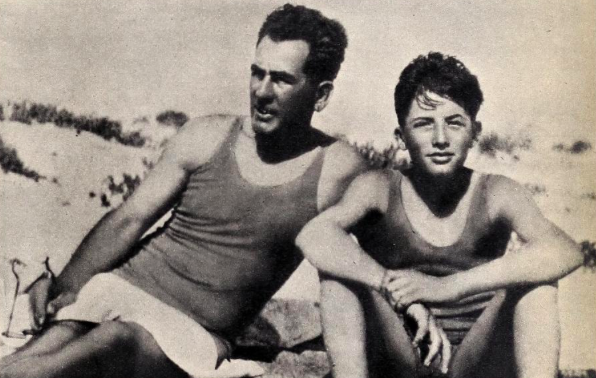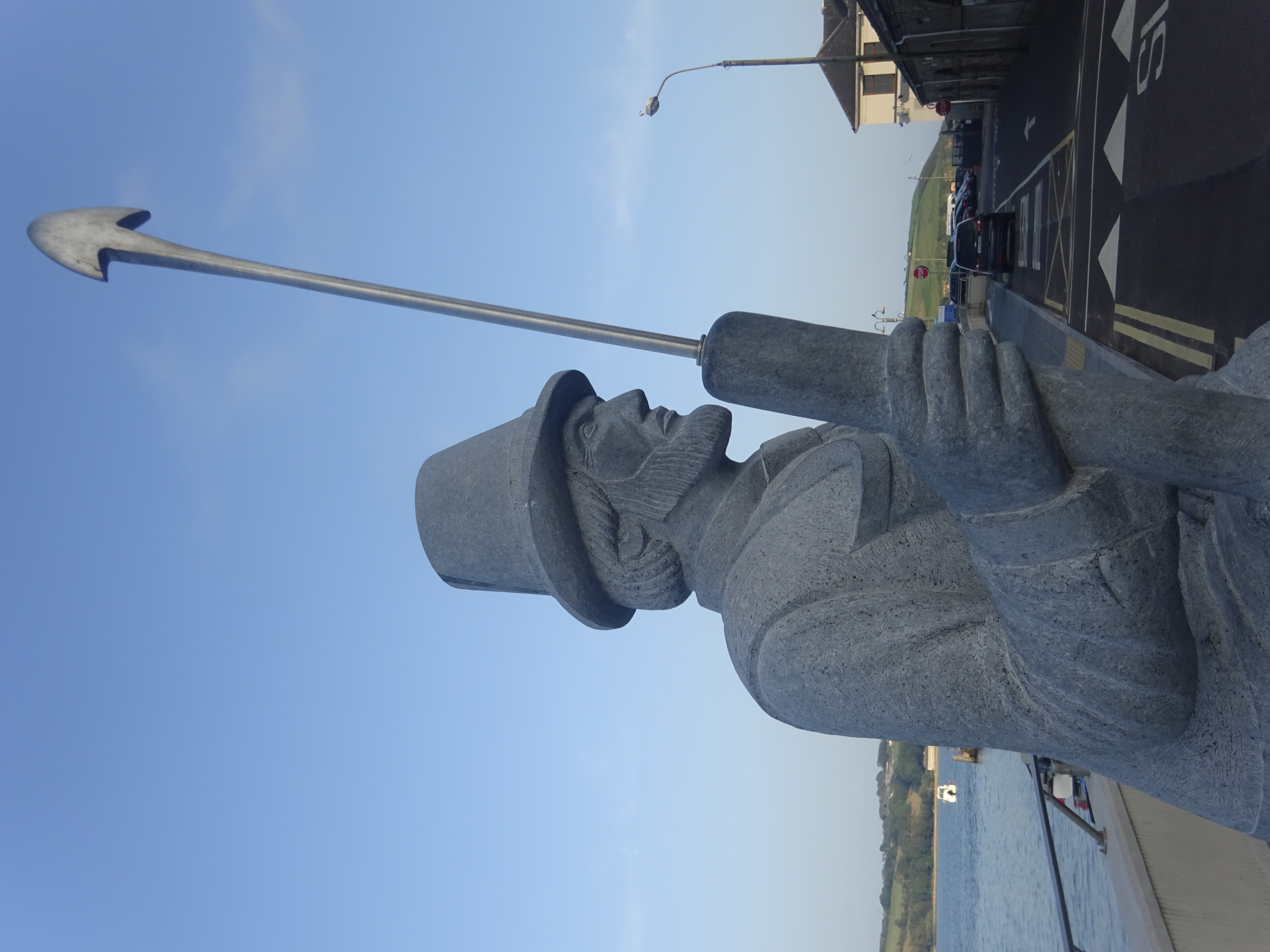|
Seamen's Bethel
The Seamen's Bethel (or Seaman's Bethel) is a chapel in New Bedford, Massachusetts, United States, located at 15 Johnny Cake Hill. History Built by the ''New Bedford Port Society'', it was completed on May 2, 1832. It is a contributing property to the New Bedford Historic District, a National Historic Landmark. The Seamen's Bethel was specifically constructed for the many sailors who called New Bedford their home port (mostly whalers), who considered it a matter of tradition that one visited the chapel before setting sail. Some changes were made when the structure was repaired after a fire in 1866. The names of New Bedford whalers killed, and later all area fishermen, are noted on the walls of the bethel. James Henry Gooding, a war correspondent and member of the 54th Massachusetts Infantry Regiment during the Civil War, married Ellen Louisa Allen in the bethel in the summer of 1862. In 1996 the Seamen's Bethel, along with the New Bedford Whaling Museum (located across the s ... [...More Info...] [...Related Items...] OR: [Wikipedia] [Google] [Baidu] |
Boston
Boston (), officially the City of Boston, is the capital city, state capital and List of municipalities in Massachusetts, most populous city of the Commonwealth (U.S. state), Commonwealth of Massachusetts, as well as the cultural and financial center of the New England region of the United States. It is the 24th-List of United States cities by population, most populous city in the country. The city boundaries encompass an area of about and a population of 675,647 2020 U.S. Census, as of 2020. It is the seat of Suffolk County, Massachusetts, Suffolk County (although the county government was disbanded on July 1, 1999). The city is the economic and cultural anchor of a substantially larger metropolitan area known as Greater Boston, a metropolitan statistical area (MSA) home to a census-estimated 4.8 million people in 2016 and ranking as the tenth-largest MSA in the country. A broader combined statistical area (CSA), generally corresponding to the commuting area and includ ... [...More Info...] [...Related Items...] OR: [Wikipedia] [Google] [Baidu] |
Bow (ship)
The bow () is the forward part of the hull of a ship or boat, the point that is usually most forward when the vessel is underway. The aft end of the boat is the stern. Prow may be used as a synonym for bow or it may mean the forward-most part of the bow above the waterline. Function A ship's bow should be designed to enable the hull to pass efficiently through the water. Bow shapes vary according to the speed of the boat, the seas or waterways being navigated, and the vessel's function. Where sea conditions are likely to promote pitching, it is useful if the bow provides reserve buoyancy; a flared bow (a raked stem with flared topsides) is ideal to reduce the amount of water shipped over the bow. Ideally, the bow should reduce the resistance and should be tall enough to prevent water from regularly washing over the top of it. Large commercial barges on inland waterways rarely meet big waves and may have remarkably little freeboard at the bow, whereas fast military ve ... [...More Info...] [...Related Items...] OR: [Wikipedia] [Google] [Baidu] |
Chapels In The United States
A chapel is a Christian place of prayer and worship that is usually relatively small. The term has several meanings. Firstly, smaller spaces inside a church that have their own altar are often called chapels; the Lady chapel is a common type of these. Secondly, a chapel is a place of worship, sometimes non-denominational, that is part of a building or complex with some other main purpose, such as a school, college, hospital, palace or large aristocratic house, castle, barracks, prison, funeral home, cemetery, airport, or a military or commercial ship. Thirdly, chapels are small places of worship, built as satellite sites by a church or monastery, for example in remote areas; these are often called a chapel of ease. A feature of all these types is that often no clergy were permanently resident or specifically attached to the chapel. Finally, for historical reasons, ''chapel'' is also often the term used by independent or nonconformist denominations for their places of wo ... [...More Info...] [...Related Items...] OR: [Wikipedia] [Google] [Baidu] |
Churches In New Bedford, Massachusetts
Church may refer to: Religion * Church (building), a building for Christian religious activities * Church (congregation), a local congregation of a Christian denomination * Church service, a formalized period of Christian communal worship * Christian denomination, a Christian organization with distinct doctrine and practice * Christian Church, either the collective body of all Christian believers, or early Christianity Places United Kingdom * Church (Liverpool ward), a Liverpool City Council ward * Church (Reading ward), a Reading Borough Council ward * Church (Sefton ward), a Metropolitan Borough of Sefton ward * Church, Lancashire, England United States * Church, Iowa, an unincorporated community * Church Lake, a lake in Minnesota Arts, entertainment, and media * ''Church magazine'', a pastoral theology magazine published by the National Pastoral Life Center Fictional entities * Church (''Red vs. Blue''), a fictional character in the video web series ''Red vs. Blue'' * C ... [...More Info...] [...Related Items...] OR: [Wikipedia] [Google] [Baidu] |
Churches Completed In 1832
Church may refer to: Religion * Church (building), a building for Christian religious activities * Church (congregation), a local congregation of a Christian denomination * Church service, a formalized period of Christian communal worship * Christian denomination, a Christian organization with distinct doctrine and practice * Christian Church, either the collective body of all Christian believers, or early Christianity Places United Kingdom * Church (Liverpool ward), a Liverpool City Council ward * Church (Reading ward), a Reading Borough Council ward * Church (Sefton ward), a Metropolitan Borough of Sefton ward * Church, Lancashire, England United States * Church, Iowa, an unincorporated community * Church Lake, a lake in Minnesota Arts, entertainment, and media * ''Church magazine'', a pastoral theology magazine published by the National Pastoral Life Center Fictional entities * Church (''Red vs. Blue''), a fictional character in the video web series ''Red vs. Blue'' * Churc ... [...More Info...] [...Related Items...] OR: [Wikipedia] [Google] [Baidu] |
Cenotaph
A cenotaph is an empty tomb or a monument erected in honour of a person or group of people whose remains are elsewhere. It can also be the initial tomb for a person who has since been reinterred elsewhere. Although the vast majority of cenotaphs honour individuals, many noted cenotaphs are instead dedicated to the memorialization, memories of groups of individuals, such as the lost soldiers of a country or of an empire. Etymology The word "cenotaph" in the English Language is derived from the Greek el, κενοτάφιον, kenotaphion, label=none. It is a Compound (linguistics), compound word that is created from the Morphology (linguistics), morphological combination of two root words: # el, κενός, kenos, label=none meaning "empty" # el, τάφος, taphos, label=none meaning "tomb", from el, θαπτω, thapto, I bury, label=none History Cenotaphs were common in the ancient world. Many were built in Ancient Egypt, Ancient Greece and across Northern Europe (in t ... [...More Info...] [...Related Items...] OR: [Wikipedia] [Google] [Baidu] |
Orson Welles
George Orson Welles (May 6, 1915 – October 10, 1985) was an American actor, director, producer, and screenwriter, known for his innovative work in film, radio and theatre. He is considered to be among the greatest and most influential filmmakers of all time. While in his 20s, Welles directed high-profile stage productions for the Federal Theatre Project, including an adaptation of ''Macbeth'' with an entirely African-American cast and the political musical '' The Cradle Will Rock''. In 1937, he and John Houseman founded the Mercury Theatre, an independent repertory theatre company that presented a series of productions on Broadway through 1941, including '' Caesar'' (1937), an adaptation of William Shakespeare's '' Julius Caesar''. In 1938, his radio anthology series '' The Mercury Theatre on the Air'' gave Welles the platform to find international fame as the director and narrator of a radio adaptation of H. G. Wells's novel '' The War of the Worlds'', which cau ... [...More Info...] [...Related Items...] OR: [Wikipedia] [Google] [Baidu] |
Gregory Peck
Eldred Gregory Peck (April 5, 1916 – June 12, 2003) was an American actor and one of the most popular film stars from the 1940s to the 1970s. In 1999, the American Film Institute named Peck the 12th-greatest male star of Classic Hollywood Cinema. After studying at the Neighborhood Playhouse with Sanford Meisner, Peck began appearing in stage productions, acting in over 50 plays and three Broadway productions. He first gained critical success in '' The Keys of the Kingdom'' (1944), a John M. Stahl–directed drama which earned him his first Academy Award nomination. He starred in a series of successful films, including romantic-drama '' The Valley of Decision'' (1944), Alfred Hitchcock's '' Spellbound'' (1945), and family film '' The Yearling'' (1946). He encountered lukewarm commercial reviews at the end of the 1940s, his performances including '' The Paradine Case'' (1947) and '' The Great Sinner'' (1948). Peck reached global recognition in the 1950s and 1960s, appea ... [...More Info...] [...Related Items...] OR: [Wikipedia] [Google] [Baidu] |
Moby Dick (1956 Film)
''Moby Dick'' is a 1956 color film adaptation of Herman Melville's 1851 novel '' Moby-Dick''. It was directed by John Huston with a screenplay by Huston and Ray Bradbury. The film starred Gregory Peck, Richard Basehart, and Leo Genn. The music score was written by Philip Sainton. Plot In 1841, a sailor named Ishmael wanders to the New England town of New Bedford, Massachusetts to sign on a whaling ship. In the inn where he is staying for the night, he is forced to share his room with a Pacific Islander and harponeer named Queequeg, whom he befriends after a tense first meeting. The next morning, the two of them hire onto a whaling ship named ''Pequod'', which is commanded by grim Captain Ahab, who is obsessed with hunting and killing a legendary white-skinned whale named Moby Dick, who was responsible for severing Ahab's left leg. Just before their departure, Ishmael and Queequeg encounter a man named Elijah, who delivers an ominous warning about Ahab and that all b ... [...More Info...] [...Related Items...] OR: [Wikipedia] [Google] [Baidu] |
John Huston
John Marcellus Huston ( ; August 5, 1906 – August 28, 1987) was an American film director, screenwriter, actor and visual artist. He wrote the screenplays for most of the 37 feature films he directed, many of which are today considered classics, including '' The Maltese Falcon'' (1941), ''The Treasure of the Sierra Madre'' (1948), '' The Asphalt Jungle'' (1950), '' The African Queen'' (1951), '' The Misfits'' (1961), '' Fat City'' (1972), '' The Man Who Would Be King'' (1975) and '' Prizzi's Honor'' (1985). During his 46-year career, Huston received 15 Academy Award nominations, winning twice. He also directed both his father, Walter Huston, and daughter, Anjelica Huston, to Oscar wins. In his early years, Huston studied and worked as a fine art painter in Paris. He then moved to Mexico and began writing, first plays and short stories, and later working in Los Angeles as a Hollywood screenwriter, and was nominated for several Academy Awards writing for films directe ... [...More Info...] [...Related Items...] OR: [Wikipedia] [Google] [Baidu] |
Down To The Sea In Ships (1922 Film)
''Down to the Sea in Ships'' is a 1922 American silent romantic drama film about a 19th-century Massachusetts whaling family. Directed by Elmer Clifton, the film stars William Walcott, Marguerite Courtot, and Clara Bow. The film's title comes from Psalm 107, verses 23–24. Plot Captain Charles W. Morgan (William Walcott) is a well-respected businessman who owns a fleet of whaling ships in the Quaker town of New Bedford, Massachusetts. He is very close to his shy, obedient daughter, Patience (Marguerite Courtot), and tells her that she must marry a man who is a whaler and a Quaker, like him. His son and daughter-in-law were lost ten years before while on a whaling expedition; eventually, their baby, his granddaughter Dot ( Clara Bow), was found floating near shore on a raft made of branches. He has raised her ever since. Dot is a mischievous, rebellious child, who wants to be a whaler when she grows up, an ambition that is not acceptable for a female among her people. One ... [...More Info...] [...Related Items...] OR: [Wikipedia] [Google] [Baidu] |
Enoch Mudge
Enoch Mudge (1776–1850) was the first native New Englander to be ordained as a Methodist minister. Biography Born in Lynn, Mass., he was converted under Jesse Lee, the pioneer of Methodism in New England, and entered the ministry in 1793. He labored as an itinerant preacher in Maine until 1799, when his health gave way and he was forced to retire. He settled in Orrington, Maine, and was twice chosen Representative to the General Court of Massachusetts, in 1811-12 and 1815-16. In 1811 he had much to do with passing the "Religious Freedom Bill," which repealed a law requiring Massachusetts taxpayers of any denomination to pay taxes to support the Congregational Church. In 1814 he was chaplain to a Maine militia regiment that participated in the Battle of Hampden during the War of 1812."The Battle of Hampden" Harry Chapman, ''Sprague's Journal of Maine History'', vol. II, no. 4 (Oct., 1914) In 1816 he moved back to Massachusetts and resumed preaching. From 1832 to 1844 ... [...More Info...] [...Related Items...] OR: [Wikipedia] [Google] [Baidu] |





